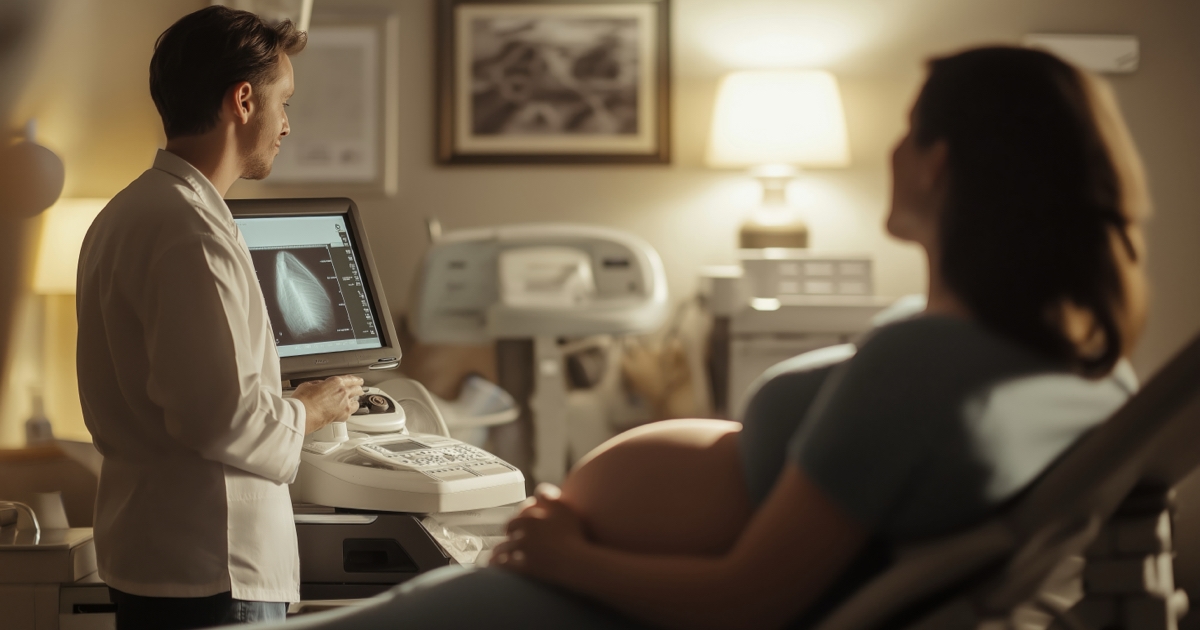Safely Monitoring Your Baby’s Health in the Womb
A Detailed Ultrasound Examination — also known as a Level II scan, anomaly scan, or anatomical screening — is one of the most comprehensive assessments performed during pregnancy.
It evaluates your baby’s entire anatomy and screens for possible structural abnormalities. This scan is typically done between 18 and 23 weeks of pregnancy, the period when most congenital anomalies can first be detected.
Although it is known by different names, all refer to the same purpose:
to scientifically evaluate your baby’s development, organ structures, and overall well-being inside the womb.
Why Is Ultrasound So Important?
Today, ultrasound is not merely an imaging technique — it is a reliable diagnostic tool that supports clinical decision-making.
At any stage of pregnancy, ultrasound helps assess:
- Presence, number, and heartbeat of the fetus
- Gestational age and growth progress
- Position of the pregnancy and placenta
- Amniotic fluid levels
- Organ development and structural integrity
- Early signs of congenital disorders
Ultrasound imaging is completely safe for both mother and baby. However, it must be performed at the right time, using appropriate techniques, and by an experienced specialist to ensure accuracy.
Is It Done Vaginally or Abdominally?
In most cases, the detailed scan is performed abdominally.
However, in the early weeks of pregnancy, when the embryo is still very small, transvaginal ultrasound may be preferred.
This method is neither painful nor risky — it does not cause miscarriage, infection, or bleeding.
In later weeks, transvaginal ultrasound may also be required for assessing cervical length and potential preterm birth risk.
What Conditions Can Be Detected?
A detailed ultrasound evaluates the baby’s internal organs — including the brain, heart, kidneys, stomach, spine, and skeletal system.
Findings are generally categorized as:
- Major anomalies: Life-threatening or severe conditions requiring surgical or intensive postnatal care.
- Minor anomalies: Usually harmless on their own but may sometimes indicate a chromosomal or genetic disorder.
Major structural anomalies occur in approximately 2–3% of all pregnancies.
Commonly detected conditions include anencephaly (absence of brain tissue), spina bifida, major heart defects, or renal agenesis (absence of kidneys).
Detection rates vary by timing:
- 15–40 weeks: 50–80%
- 18–23 weeks: 60–70% (optimal window)
However, certain factors — such as maternal abdominal fat, previous abdominal surgeries, fetal position, or low amniotic fluid — can affect image quality.
Can Every Anomaly Be Seen?
Detailed ultrasound can identify most major structural problems, but it does not detect every congenital disorder.
Small defects or abnormalities that develop later in pregnancy may not be visible in the mid-trimester scan.
Therefore, ultrasound findings must always be interpreted alongside the mother’s medical history, family background, and additional test results.
For instance, while ultrasound may show soft markers suggestive of Down syndrome (Trisomy 21), it cannot provide a definitive diagnosis.
In such cases, fetal DNA testing (NIPT), combined screening, or invasive procedures such as CVS or amniocentesis may be recommended for confirmation.
What Affects Reliability?
The accuracy of anomaly screening depends on:
- Gestational age at the time of the scan
- Quality of the ultrasound equipment
- Experience and skill of the physician
Scientific data show that detection rates vary between 20% and 80%, with an average of around 60% in Europe.
This underscores the importance of having your scan performed by a qualified perinatologist or maternal-fetal medicine specialist.
When Should It Be Done?
A detailed fetal anatomy scan is recommended for all pregnancies between 20 and 22 weeks.
It should ideally be performed by a specialist experienced in high-risk pregnancies (perinatology).
A Window into Your Baby’s Health
Detailed ultrasound is not just an imaging tool — it is a form of scientific guidance that helps ensure your baby’s healthy development before birth.
To schedule your detailed ultrasound evaluation, please contact our clinic — we’ll help you ensure your baby’s health and your peace of mind.

